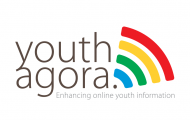Drupal-based templates: design, deployment, support, usability
Template websites are "distributions" of Drupal targeted at different organizations having common needs: for example, local branches of student organizations, or Universities that want to promote a Master Course through an online dissemination platform. In these cases, more than a plain Drupal, it is better to rely on a standardized template including Drupal, a set of preconfigured modules, an easily customizable theme and extra services.
Youth Agora vzw, a Brussels-based organization, will present its experience in creating Drupal website templates.
- Development process: identifying the needs of a template, maintaining and upgrading the template and modules repository automatically.
- Customization: designing easy-to-use, nicely customizable, themes, so that every every template can be adapted to fit the individual organization while retaining a common visual identity.
- Usability: designing contributed modules that guide the user through the process of fully personalizing and understanding a template.
- Sustainable support through community building: bundling documentation and means to easily provide feedback with each template; exploiting the similarity in the use cases of each template to build a self-supporting community, based on mutual help between peers and on collaboration (discussion lists, wikis).
- Aggregation: taking advantage of the common structure of the templates to build aggregator websites, automatically fetching information from the templates; monitoring installed templates with custom Drupal modules.
Two success stories will be used to exemplify the Youth Agora template-based approach:
- ESN Satellite, developed for the European Erasmus Student Network: http://satellite.esn.org (aggregator site: http://galaxy.esn.org) and now powering 200 websites in Europe.
- The Master Template, a template for Master Courses websites: http://europeancampus.eu (now in pilot phase, will cover 120 master courses around Europe by the end of the project)
The following modules and technologies will be addressed in this session: Drush, Content Complete / Complete, Base Theme (usability), Advanced Help / Helpinject, FeedAPI, XML-RPC and more.
Presented by the Youth Agora team: Andrea Pescetti, Antonio De Marco, Christof Devriendt, Peter Vanhee.




